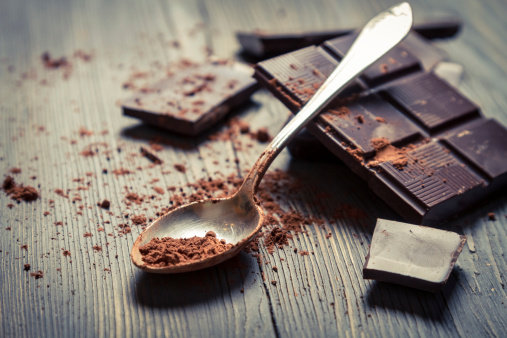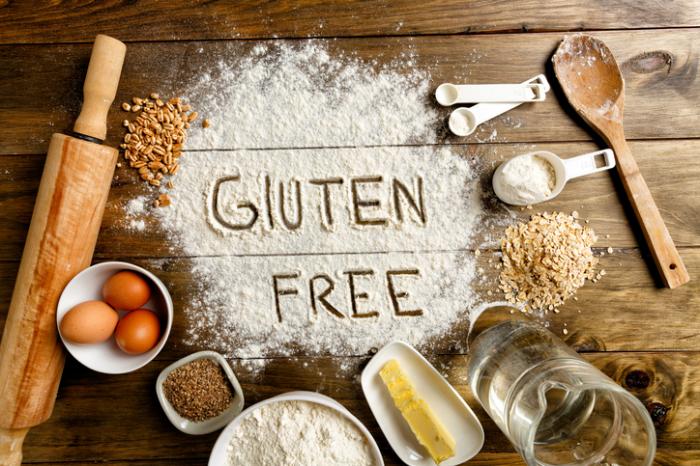7 Dumbest Nutrition Myths You Need to Stop Believing
#4 makes us feel like our whole life was a lie!

1. Switching to sea salt from regular table salt is healthier.
One of the most common myths everyone is blinded by is, substituting sea salt with regular salt as a healthier option. The basic difference between the two salts is in their taste, texture and processing. While everyday table salt is extracted from a mine, sea salt is obtained from evaporated seawater. Their sodium content is roughly the same – 2300 milligrams of sodium per tablespoon. Sea salt is promoted by health advocates as in addition to sodium, they also contain other compounds like magnesium, and iron. But the truth is, even though these elements are present, they are in extremely scarce amounts, and to actually benefit from their presence would implying dosing heavily on dangerous levels of sodium! In addition to that, opting for sea salt makes you miss out on the iodine, that is an essential component of the regular table salt. Iodine is important for the body as it helps in regulating hormones. So the bottom line is, switching from table salt to sea salt ain't all that helpful, plus it wastes a few extra bucks!

2. The Paleo Diet is the best way to fire up weight loss.
If you're not one of those who are raving over the famous Paleo diet, you're a rare case. To fill you up, it's essentially loading up on fruits, veggies, lean meat, sea food, nuts and seeds, and healthy fats replacing dairy, grains, processed foods and sugars, legumes, starches and alcohol. You would say, this is the perfect way to lose all extra weight you've been carrying around, and this one is a sure shot hit.
Plus, bacon and steak for weight loss? Yes, please! But the Paleo diet is indeed, too good to be true. According to Spanish researchers, even though this form of low-card, high-protein diet will help shed extra kilos, it can cause weight gain in the long run. Several studies have revealed that those who follow a high-protein diet have a 90% greater risk of gaining more than 10% of their body weight, over time, as opposed to their counterparts who avoid going heavy on the meat.
To actually benefit from the Paleo diet without paying for it later, one needs to cut back a tad bit on the protein. Men should get no more than 56 grams a day and women should aim for 46 grams.
3. Loading up on yoghurt will keep all gut problems at bay.
Before you set off all guns blazing on us with your argument about this one, we want to clarify that it is true that yoghurt contains beneficial bacteria that is great for your gut. No fallacy in that! It's the Lactobacillus acidophilus bacteria that you want to look for. The upsetting fact here is, most packaged yoghurts are loaded with sugar which promote unhealthy gut bacteria, more than their healthier counterpart. Not to mention the fact that excess sugar will end up deteriorating your perfect set of pearly whites, in no time. So before gorging on your favourite yoghurt believing you're doing your tummy a favour, check it's sugar content. Or opt for a homemade fix instead!
4. Peanut butter is a healthy snack, if you're trying to lose weight.
We are actually sorry to break this one, because let's face it, peanut butter is too yum! You probably have read it everywhere as a super-healthy snack, and loaded your pantry with peanut butter jars.
Before you start abusing the health trivia which was promoting it as a health snack, for fooling you; read on. Peanut butter is actually a health food. Peanuts are packed with monounsaturated fats aka MUFA or the heart-healthy fat which aids in weight loss. So what's wrong with peanut butter then, you'd wonder. The ordinary peanut butter jar that you get at the store is not just comprising of peanuts. Most peanut butters are highly processed and loaded with sugars and trans-fatty oils, and contain less of the healthy monounsaturated fats that you truly need. 'Peanut butter spread' is even worse. The word 'spread' indicates that it's at least 10% additives. So if you really want peanut butter in your life, without it harming your body, look for a natural version of it.

5. Gorging on dark chocolate helps in burning fat.
Our inner chocolate junkie totally rejoiced when we learnt that eating dark chocolate helps in losing weight. Just look for chocolate bars darker than the realities of life, and you're all set. Alas, unlocking the health benefits of chocolate are a little more complicated. Studies show that polyphenols i.e nutrients found in dark chocolate, help in burning fat, along with lowering blood pressure. But the catch here is – how processed is your dark chocolate? The more the chocolate is processed, more of its magic ingredient is lost! Creating 'Dutch' chocolate, in which an alkalising agent is added to cocoa to reduce acidity, destroys up to 77 percent of the nutrients in the cocoa. To actually derive the health benefits touted in dark chocolate, you'd actually have to look for a bar that says 70% cacao. The rest is just candy.
6. Munching on celery leads to a calorie deficit, which in turn causes weight loss.
Let's first introduce the wildly popular concept of 'negative calories' which is taking the Internet by a storm. Some foods are so less in calories, that the process of chewing and digesting their consumption, results in a calorie deficit, that ultimately leads to weight loss. Celery, tops the list of foods that come under this category. Celery has only 10 calories, as much of it's composition is bound up in cellulose which passes out undigested. Realistically speaking, it barely takes a little more than half a calorie to digest a stalk! A study published in The American Journal of Clinical Nutrition suggests the thermic effect (the increase of metabolism after eating) may be even lower after high-fiber meals (for instance, celery!). Bottom line is, it's not an unhealthy snack option obviously, but it isn't a magic bullet to spike up your weight loss. If you're eating, you're consuming calories. Period.

7. Choosing foods that are gluten-free will help you eat healthier.
A nutritionist is most likely to prescribe a gluten-free diet regime to treat patients who are sensitive to gluten, or have celiac disease. A protein found in wheat, barley, and rye grains – gluten, does not harm the body, unless you come under the category mentioned above. Skipping it unnecessarily might lead you to miss out on essential vitamins, fiber, and minerals that the body needs. A gluten-free diet is not a weight-loss diet and is not intended to help you lose weight.
more from Life

Cannot stand the mush anymore? Beat them at their game with a holidate

How to nail monochrome looks this season

Is it okay to ask about a second date on the first date?

Jorts are back, and they're staying in 2025

Here are five sexolutions I am setting for 2025!

Your year-end fashion inspiration from Amazon Fashion and Beauty’s Walk-in Wardrobe Creator Connect event

Get into the Christmas spirit with these jolly good nails!

Amazon Fashion brings tailored style for every Gen Z vibe

9 things you can to do to find your ‘the one’ on a dating app

Divine messages for each zodiac sign for this season of change and renewal



